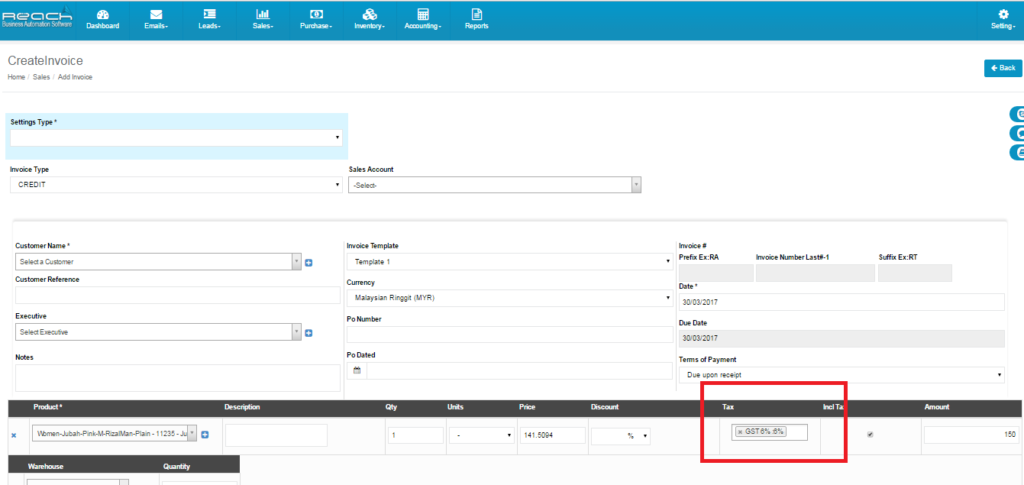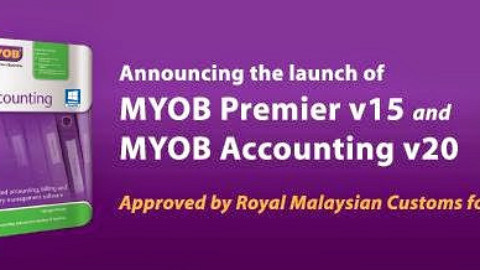SELF BILLED INVOICE
Self–billing is a commercial arrangement between a supplier and a customer in which the customer prepares the supplier’s invoice and forwards a copy to the supplier with the payment. You may only issue self–billed invoices to your suppliers if: they have agreed to this method of accounting.
Self-billed invoice is an arrangement between a GST-registered supplier and a GST-registered customer in which the customer prepares the supplier’s tax invoice and forwards a copy to the supplier. In some industries e.g. publication industry, the business arrangement with customers is that the customers will determine and verify the final value of the goods delivered or the services rendered to them. Hence, it is more convenient for the customer, rather than the supplier, to issue the tax invoice. Some customers may also prefer self-billing as it facilitates their internal controls and accounting system given that their suppliers will be working with uniform purchase documentation.
Before you apply for self-billed invoice, you should consider the following points: You will have added responsibilities to ensure that the conditions of self-billings are satisfied. You will have to ensure that the correct GST amount is charged for the goods and services supplied to you. You will have to ensure that any errors made on buyer-created tax invoices are corrected and the supplier is duly informed.
Under certain circumstances, the value of supply is determined by the person who receives the goods. Therefore, for GST purpose the recipient of the goods is allowed to issue an invoice to himself which is deemed to be a tax invoice in respect of a supply of goods or services to him by another registered person or any person approved by the Director General. The issuance of this self-billed invoice by the recipient to himself under subsection 33(3) of the GST Act 2014 shall be subject to the following conditions:
- the value is not known by the supplier at the time of making the supply;
- the recipient and the supplier are both registered persons or any supplier approved by the Director General;
- the recipient and the supplier agree in writing to a self-billed invoice; iv. the supplier and the recipient agree that the supplier shall not issue a tax invoice in respect of any supply;
- the document may, with the prior approval of the Director General, be treated as a tax invoice;
- a copy of any self-billed invoice is provided to the supplier and another copy is retained by the recipient;
- in the case where the self-billed invoice is issued before the time of removal of such goods, or before the time the goods are made available, or before the time the services are performed, the selfbilled invoice shall be issued with payment;
viii. the recipient shall issue a self-billed invoice e showing the following particulars:
- the supplier’s and recipient’s names, addresses and identification numbers;
- the word ‘self-billed invoice’ in a prominent place;
- the invoice serial number;
- the date of issuance of the invoice;
- the reference number of RMCD’s approval;
- a description sufficient to identify the goods or services supplied;
- for each description, distinguish the type of supply for zero rate, standard rate and exempt, the quantity off the goods or the extent of the services supplied and the amount payable, excluding tax;
- any discount offered;
- the total amount payable excluding tax, the rate of tax and the total tax chargeable to be shown separately;
- the total amount payable inclusive of the total tax chargeable; and
- any amount referred to in subparagraphs (ix) and (x), expressed in a currency, other than Ringgit, shall also be expressed in Ringgit in accordance with paragraph 5 oof the Third Schedule of the GST Act 2014.
- any other conditions as the Director General deems fit to impose.
Who can issue Self Billed Invoice:
In a normal business transaction, the supplier will issue an invoice to the buyer. However, in the case of self-billed invoice the buyer will issue an invoice because the supplier is unable to determine the value of the supply. A copy of the invoice should be retained by the supplier whereas the original invoice should be retained by the recipient/buyer to claim input tax (GST paid on inputs). For example, tobacco manufacturers issue tax invoices to growers who supply tobacco leaves. Since the recipient/buyer knows the open market value of the tobacco leaves, thus they are best able to provide the necessary information on the value of the product and will therefore issue a self-billed invoice.
You can only issue self-billed invoice upon the Director General’s approval. The reference number of the approval must be stated in the self-billed invoice. If you do not meet the specified standards for such invoices, your approval can be cancelled at any time.
Contents of Written Agreement:
on Self Billing A self billed invoice can only be issued under a written agreement between the recipient/buyer and the supplier. A self-billing agreement shall contain the following information:
- the recipient/buyer’s name and GST identification number;
- the supplier’s name and GST identification number;
iii. the buyer agrees to issue self-billed invoices for all supplies made to him/her by the supplier for a specified period which shall end not later than either the expiry date of a period of 12 months, or the expiry date of contract between the buyer and supplier;
- the buyer agrees to issue self-billed invoices showing the supplier’s name, address and GST identification number, and other details that make up a full tax invoice;
- the buyer agrees to inform the supplier if the issuance of selfbilled invoices will be outsourced to a third party such as an accounting firm or tax agent, giving details of the third party;
- the buyer agrees to make a new self-billing agreement in the event that their GST identification number changes;
vii. the supplier agrees to accept the self billed invoices issued by the buyer for supplies covered by the agreement;
viii. the supplier agrees not to issue GST invoices for supplies covered by the agreement; and
- the supplier and recipient will notify each other if either one of them ceases to be registered for GST, transfers his business as a going concern or becomes registered under a new GST ID.
Record Keeping
Now that you decided to self-bill, you will need to retain appropriate records:
- Copies of all the self-invoicing agreements entered into with every supplier.
- The VAT numbers, names and addresses of each supplier agreed to be self-billed.
If you decide to subcontract the process of self-invoicing to a 3rd party, you are still liable for maintaining the records. If the compulsory records are note kept, the invoices issued will not acceptable VAT-invoices – therefore you cannot claim back the input VAT shown. Do not forget you will need provide your agreement and invoices if HM Revenue & Customs request them.
Information Required on the Self Billed Invoices
When the agreement has been set up with your supplier, you are required to issue invoices for each purchase and credit note, until the self-billing agreement end date (usually 12 months).
In addition to entering the standard information that is required to be put onto a VAT-invoice you will additionally be required to enter the following details for your suppliers:
- Their Name;
- Their Address;
- Their VAT number.
Any recipient approved by the Director General to issue self billed invoice,
shall be subjected to the following conditions:
(a) the document may, with the prior approval of the Director General, be
treated as a tax invoice;
(b) a copy of any self-billed invoice is to be provided to the supplier and a
copy is to be retained by the recipient; and
(c) in the case where the self-billed invoice is issued before the time of
removal of such goods, or before the time the goods are made
available, or before the time the services are performed, the self-billed
invoice shall be issued with payment.

Application for Self Billed Invoice
In a normal business transaction, the supplier will issue an invoice to the buyer. However, in the case of self billed invoice the buyer will issue an invoice because the supplier is unable to determine the value of the supply. A copy of the invoice should be retained by the supplier whereas the original invoice should be retained by the recipient/buyer to claim input tax (GST paid on inputs). For example, tobacco manufacturers issue tax invoices to growers who supply tobacco leaves. Since the recipient/buyer knows the open market value of the tobacco leaves, thus they are the best able to provide the necessary information on the value of the product and will therefore issue a self-billed invoice. GUIDE ON TAX INVOICE AND RECORDS KEEPING As at 5 DECEMBER 2016 19
Any registered person (recipient) who meets the requirements and conditions stipulated in section 33 GSTA and regulation 23 GSTR to use a self- billed invoice, may apply to the Director General by submitting a Self Billed Invoice Declaration.
The Self Billed Invoice Declaration form can be downloaded from the GST portal via the ‘Legislation and Guide’ tab.
The Declaration must be affirmed before a Commissioner of Oath and to be submitted to the customs office, GST Division (controlling station) together with the list of the suppliers who have agreed to a self- billed invoice. The copy of the Declaration is to be kept by the recipient as internal records.
Once the Declaration has been submitted to the customs office, GST Division (controlling station), the recipient may issue a self billed invoice without any further approval from the Director General.
Additional Declaration must be made and submitted if there is additional supplier.
Your approval can be cancelled at any time if it is found that you do not meet the specified requirements for such invoices.
The recipient approved by the Director General to issue a self-billed invoice shall state the following particulars on the invoice:
(a) the name, address and identification number of the supplier and the recipient;
(b) the word “self-billed invoice” in a prominent place;
(c) the invoice serial number;
(d) the date of invoice;
(e) the reference number of Director General’s approval;
(f) a description sufficient to identify the goods or services supplied;
(g) for each description, distinguish the type of supply for standard rate, zero rate and exempt, the quantity of the goods or the extent of the services and the amount payable, excluding tax;
(h) any discount offered;
(i) the total amount payable excluding tax, the rate of tax and the total tax chargeable shown as a separate amount;
(j) the total amount payable inclusive of total tax chargeable; and
(k) any amount referred to in subparagraphs (i) and (j), expressed in a currency other than Ringgit, shall also be expressed in Ringgit in accordance with paragraph 5 of the Third Schedule of the Act.
Contents of Written Agreement on Self Billed invoice
A self billed invoice can only be issued under a written agreement between the recipient/buyer and the supplier. A self-billing agreement shall contain the following information:
(a) the recipient/buyer’s name and GST identification number;
(b) the supplier’s name and GST identification number;
(c) the buyer agrees to issue self billed invoices for all supplies made to him/her by the supplier for a specified period which shall end not later than either the expiry date of a period of twelve (12) months, or the expiry date of the contract between the buyer and supplier;
(d) the buyer agrees to issue self billed invoices showing the supplier’s name, address and GST identification number, and other details that make up a full tax invoice;
(e) the buyer agrees to inform the supplier if the issuance of self-billed invoices were to be outsourced to a third party such as an accounting firm or tax agent, giving details of the third party;
(f) the buyer agrees to make a new self-billing agreement in the event that their GST identification number changes;
(g) the supplier agrees to accept the self billed invoices issued by the buyer for supplies covered by the agreement;
(h) the supplier agrees not to issue GST invoices for supplies covered by the agreement; and
(i) the supplier and recipient shall notify each other if either one of them ceases to be registered for GST, transfers his business as a going concern or becomes registered under a new GST identification number.
The statement of sale or invoice should contain the following details:
(a) auctioneer’s name, address and business registration number;
(b) buyer’s name and address;
(c) date of issue;
(d) serial number of invoice;
(e) the description sufficient to identify the goods or services supplied;
(f) the total amount payable inclusive of GST;
(g) the rate of tax;
(h) total tax chargeable; and
(i) the word “Price payable inclusive of GST”
Tax Invoice in Foreign Currency
If a registered person issues a tax invoice in a foreign currency, the following items on the tax invoice must be converted into Ringgit for GST purposes:
(a) the total amount payable (excluding GST);
(b) the total tax chargeable; and
(c) the total amount payable (including GST)





